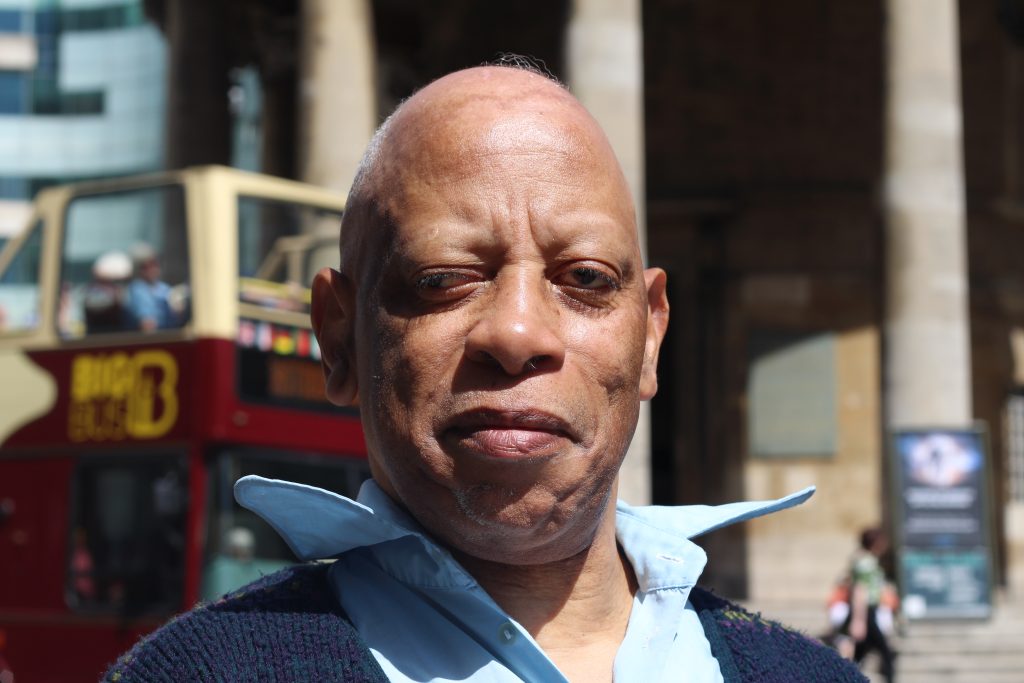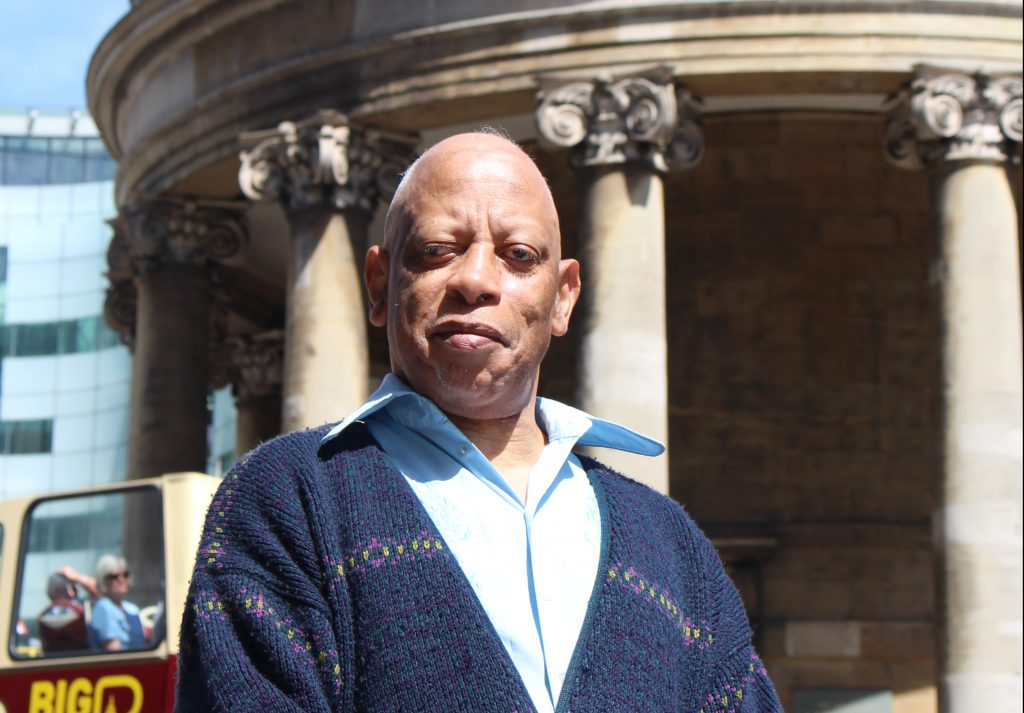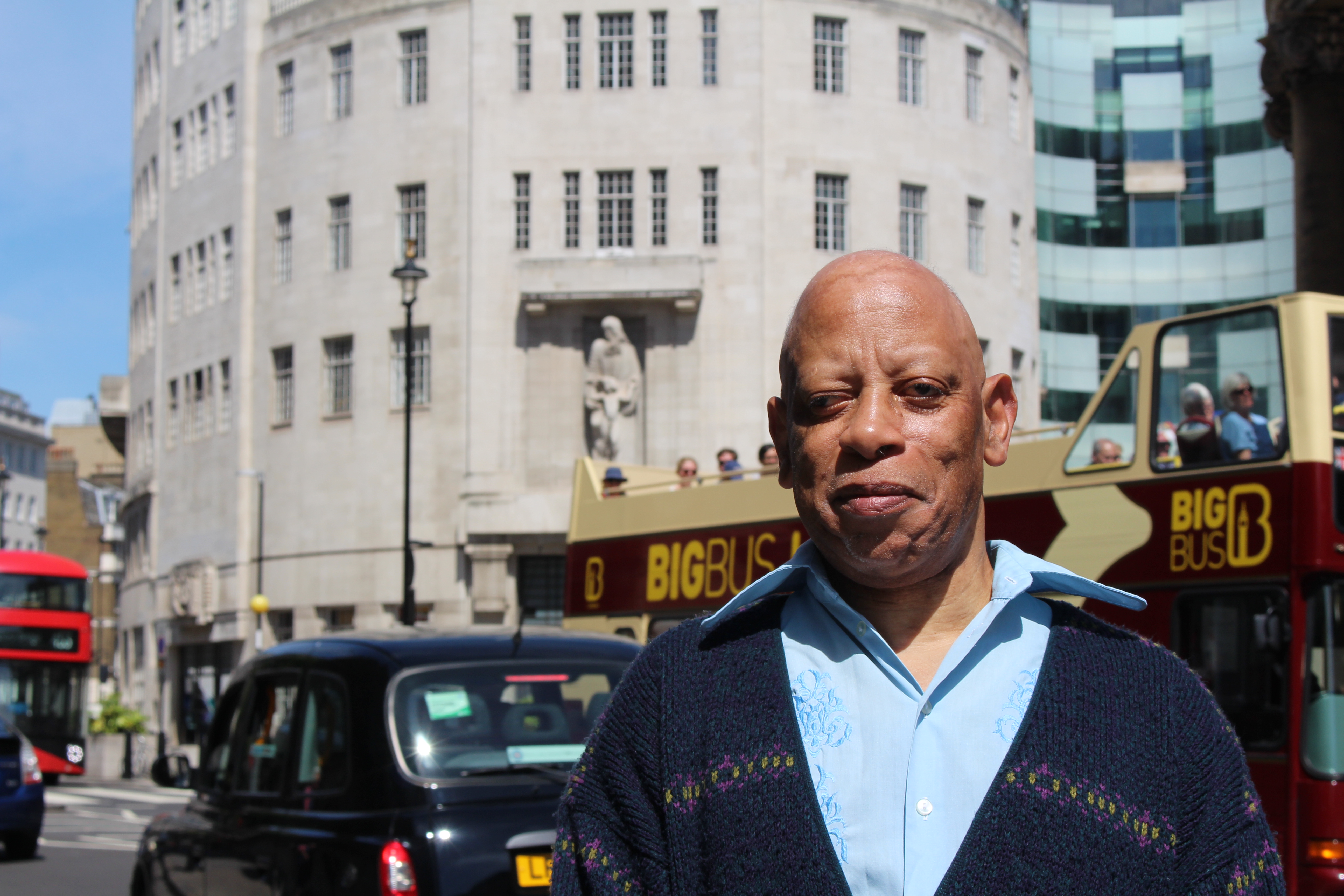Robert is ‘as young as he feels’ and is from Kensington. He lives with a learning disability and works for The Advocacy Project.
<
em>You can see an easy read version of this post here.
I love wrestling, football and spending time with my friends. I go to Equal People MENCAP to do activities. I also go to Big Voice, which is a self-advocacy group for people with learning disabilities. We talk about things that are important to us like transport, health and choices.
When an election is announced, Big Voice runs meetings about voting. We can get help with registering to vote if we need it. We go through the easy-read manifestos. We use pictures and objects of reference to help make sure we understand and then we practice voting so we know what the polling card looks like. There were no easy-read manifestos when I was young. There was no self-advocacy group or support either. It was a lot harder.

Photo: Jem Collins / RightsInfo
On the day of the election Big Voice runs a vote train, which supports people to go to their polling stations so that they can vote. I don’t need the vote train – I go to by myself. In the evening I get my card and walk down to the library and go to the polling station there. I hand in my card and get a paper. I take it into the booth where they can’t see and mark the “X” in the square and then fold it up and put it in the black box. It would be better if the ballot papers had the colours of the parties and logo and a picture of the candidate to help you remember who you’re voting for.

I think it’s good that we vote because we’re voting for the issues that matter to us really. You’re talking transport, benefits, housing, leisure, health, pensions – all of these things are important, as well as having the choice and control. These are the things I look for when I’m choosing who to vote for.
It makes me angry when parties don’t have an easy-read manifesto, because the easy-read manifesto is important to people with learning disabilities. How are people with disabilities supposed to know who the candidate is or what they look like, you know? Every political party should have to have an easy-read manifesto.
The right to free and fair elections is Robert’s human right. It’s also yours. Make sure you exercise it on Thursday 8th June.
This article is part of our accessibility and voting project. Want to know about this project and how you can get involved?
- Take a look at our previous stories on Pandora, Adam and Kieran
- You can see more about the work of The Advocacy Project on their website
- You can read more about our right to free and fair elections in this beautiful infographic






